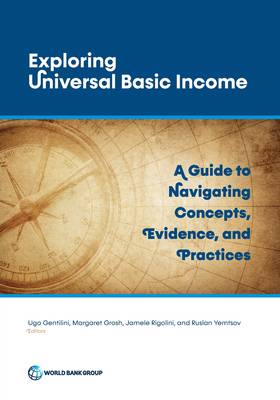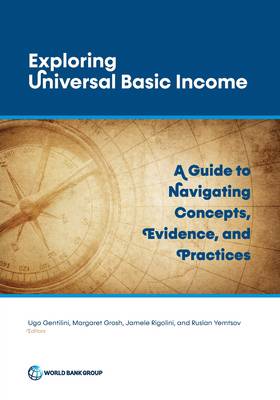
- Retrait gratuit dans votre magasin Club
- 7.000.000 titres dans notre catalogue
- Payer en toute sécurité
- Toujours un magasin près de chez vous
- Retrait gratuit dans votre magasin Club
- 7.000.0000 titres dans notre catalogue
- Payer en toute sécurité
- Toujours un magasin près de chez vous
Exploring Universal Basic Income
A Guide to Navigating Concepts, Evidence, and Practices
World Bank
Livre broché | Anglais
80,45 €
+ 160 points
Description
Universal basic income (UBI) is emerging as one of the most hotly debated issues in development and social protection policy. But what are the features of UBI? What is it meant to achieve? How do we know, and what don't we know, about its performance? What does it take to implement it in practice? Drawing from global evidence, literature, and survey data, this volume provides a framework to elucidate issues and trade-offs in UBI with a view to help inform choices around its appropriateness and feasibility in different contexts. Specifically, the book examines how UBI differs from or complements other social assistance programs in terms of objectives, coverage, incidence, adequacy, incentives, effects on poverty and inequality, financing, political economy, and implementation. It also reviews past and current country experiences, surveys the full range of existing policy proposals, provides original results from micro-tax benefit simulations, and sets out a range of considerations around the analytics and practice of UBI.
Spécifications
Parties prenantes
- Auteur(s) :
- Editeur:
Contenu
- Nombre de pages :
- 334
- Langue:
- Anglais
Caractéristiques
- EAN:
- 9781464814587
- Date de parution :
- 25-11-19
- Format:
- Livre broché
- Format numérique:
- Trade paperback (VS)
- Dimensions :
- 175 mm x 251 mm
- Poids :
- 680 g

Les avis
Nous publions uniquement les avis qui respectent les conditions requises. Consultez nos conditions pour les avis.






